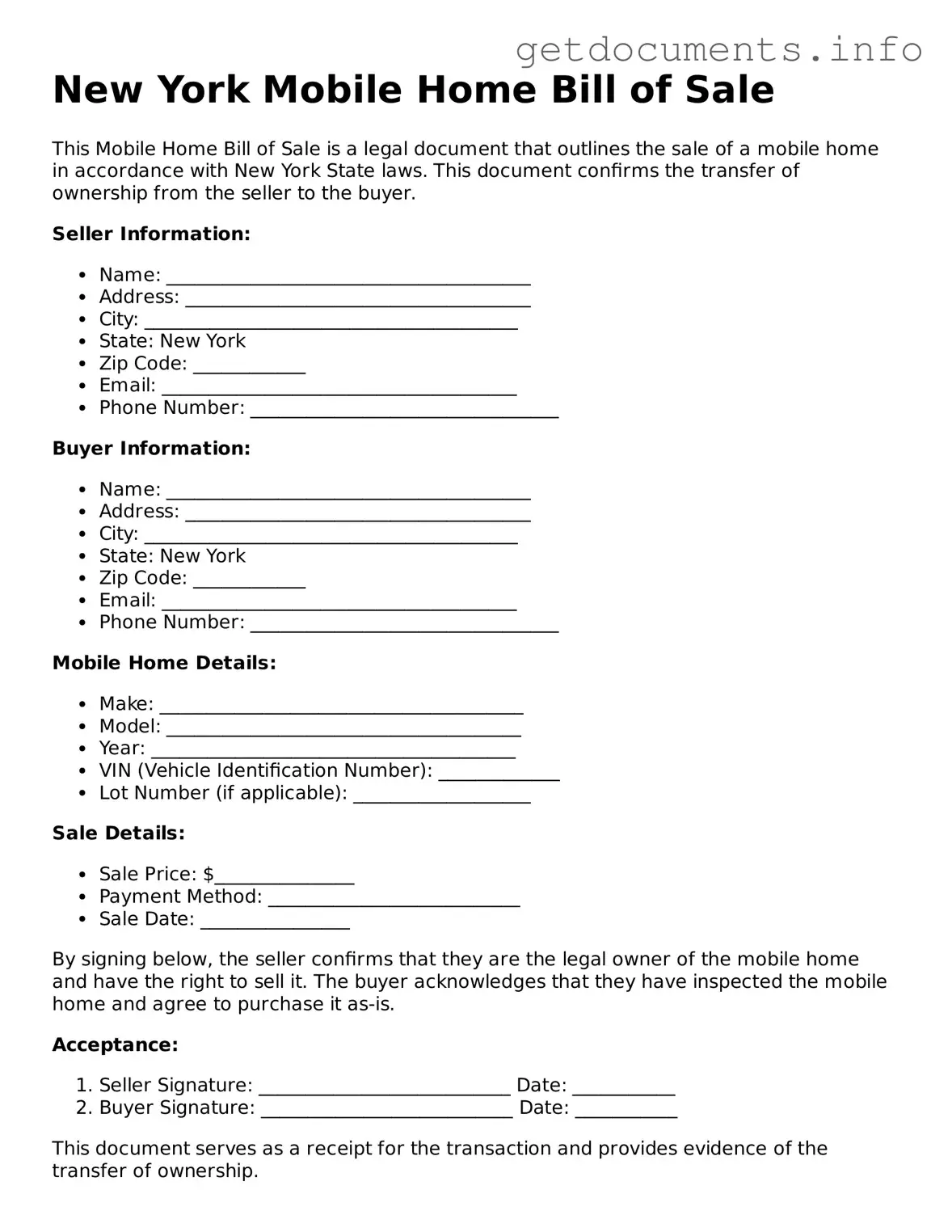Free Mobile Home Bill of Sale Template for New York
The New York Mobile Home Bill of Sale is a legal document that officially transfers ownership of a mobile home from one party to another. This form is essential for ensuring that the transaction is documented correctly and that both buyer and seller have a clear record of the sale. If you're ready to make a mobile home transaction, fill out the form by clicking the button below.
Access Mobile Home Bill of Sale Editor

Free Mobile Home Bill of Sale Template for New York
Access Mobile Home Bill of Sale Editor
Got places to be? Complete the form fast
Fill out Mobile Home Bill of Sale online and avoid printing or scanning.
Access Mobile Home Bill of Sale Editor
or
⇩ PDF File
